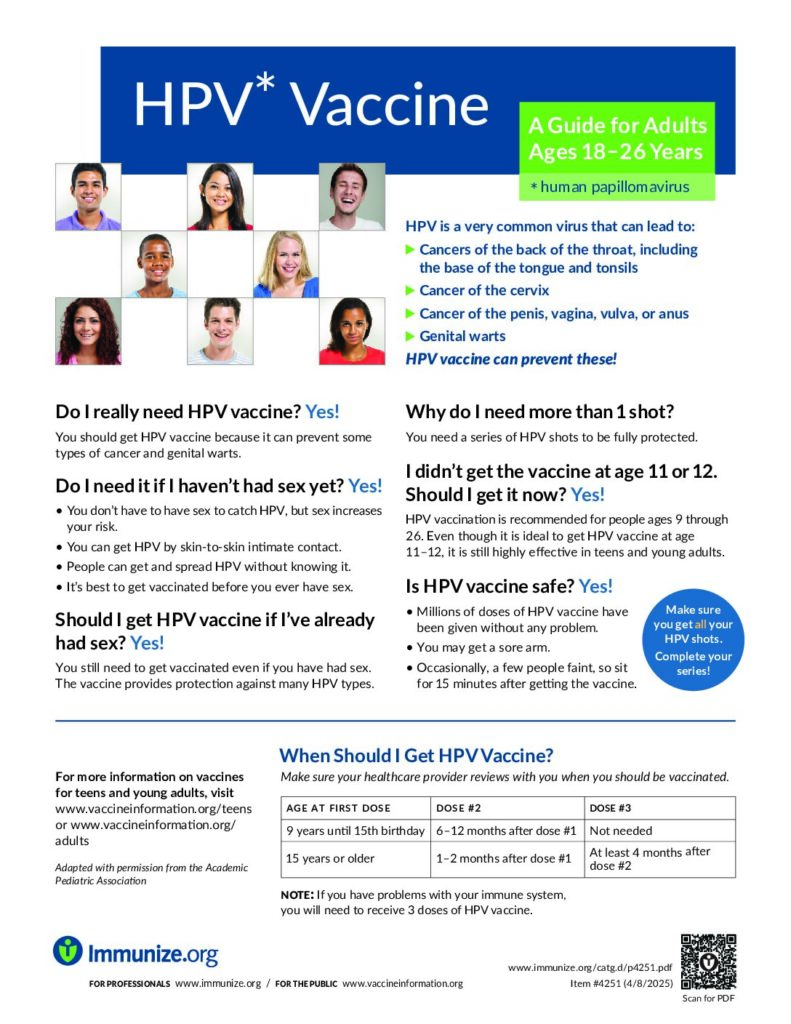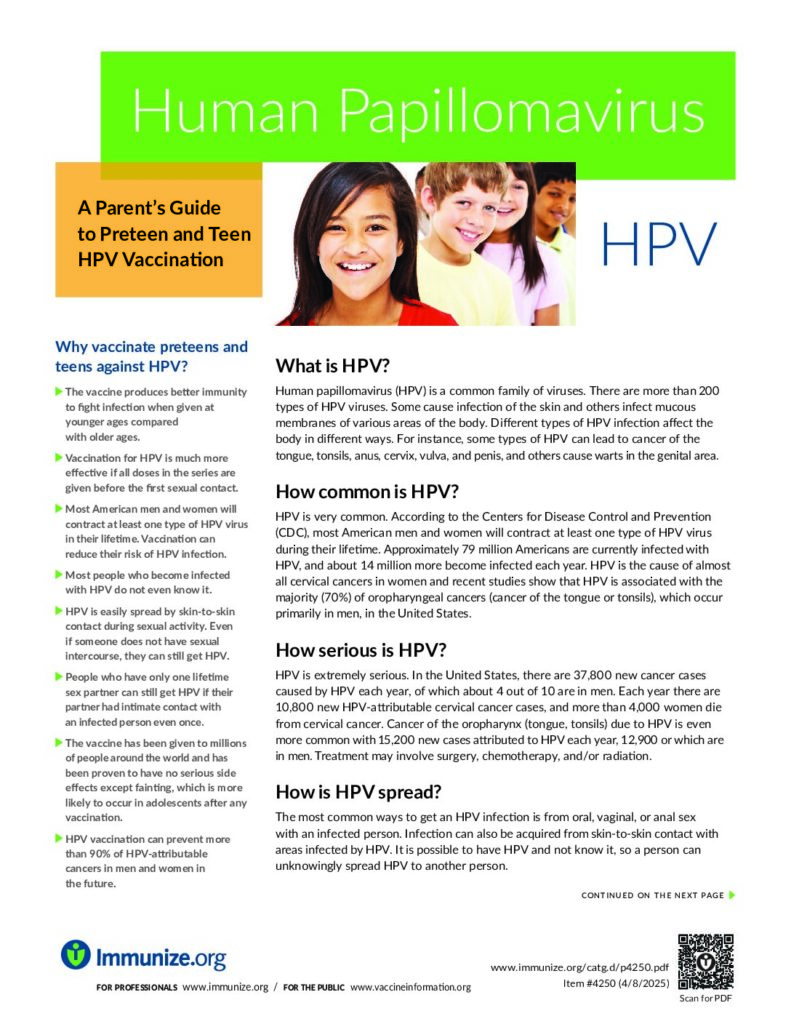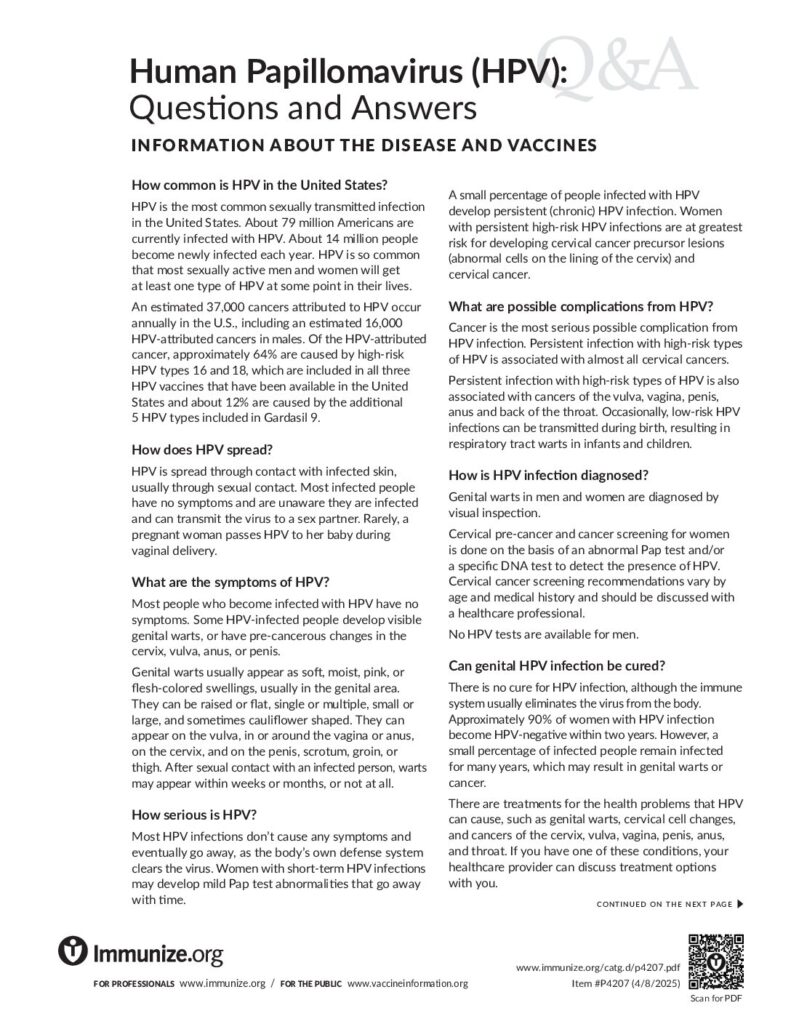Overview
- Human papillomavirus (HPV) is the most common sexually transmitted disease (STD) in the United States. HPV can lead to cervical cancer in women, as well as other oral, anal, and genital (sex organ) cancers in men and women. HPV also causes genital warts.
- HPV is usually spread during close skin-to-skin contact, such as during sex. You can spread (or get) the virus without knowing it. Sometimes babies become infected from their mothers during birth.
- HPV causes about 21,500 cases of cancer in women and about 15,500 cases of cancer in men every year in the United States.
- If you ever have sex, you are at risk. At least half of sexually active people get infected with HPV at some point in their lives.
- Vaccination is the best way to prevent HPV infection. However, HPV vaccination does not cure current HPV infections and it does not treat or cure existing pre-cancers or cancers caused by HPV.
HPV Vaccine Schedule
The vaccine is most effective if you get it before becoming sexually active. However, if you are already sexually active and age 26 or younger, you should still get vaccinated. Both girls and boys should complete the 2-dose HPV vaccine series before turning 13. Your child’s doctor may prefer to start at 9 years, while others start the series at 11–12 years. If the first dose is not given before age 15, 3 doses are needed. The vaccine may be helpful for some adults 27 through 45 years of age, and anyone in this age group should talk with their doctor about whether the vaccine would be helpful for them. The HPV vaccine series is given over 6 months.
RESOURCES
Human Papillomavirus (HPV): Questions and Answers
Information about HPV disease and vaccine, from Immunize.org.
Partner Resources
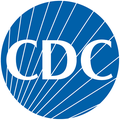
Find fact sheets, resources, multimedia, and more for parents and children from the Centers for Disease Control and Prevention.

Learn about the types of cancers HPV vaccination can prevent.

HPV vaccination is recommended at ages 11-12 years to protect against cancers caused by HPV infection. Learn more about HPV and vaccines from the Vaccine Education Center at the Children’s Hospital of Philadelphia. A Spanish-language version is also available.
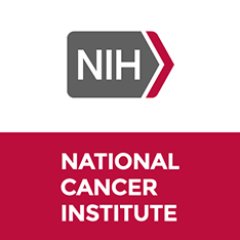
Facts and other resources about human papillomavirus (HPV) vaccines for the prevention of infection with certain types of HPV, the major cause of cervical cancer. Also available in a Spanish-language version.

Facts, information, resources, and videos about HPV vaccination from the Vaccine Education Center at the Children’s Hospital of Philadelphia.

An HPV fact sheet and Q&A from the Vaccine Education Center at the Children’s Hospital of Philadelphia. A Spanish-language version is also available.
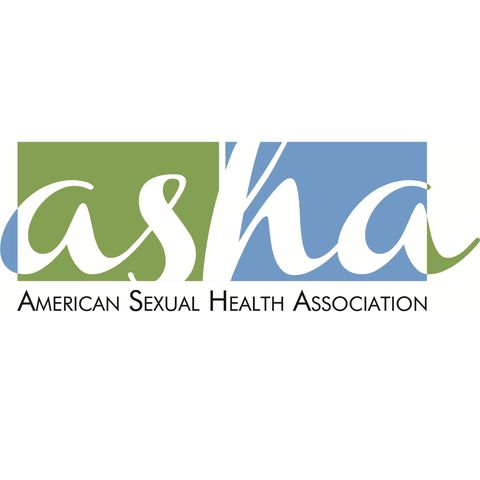
Though usually harmless, some types of HPV cause cervical lesions that, over a period of time, can develop into cancer if untreated. Learn more from the American Sexual Health Association.

Resources for women with cervical cancer, including a section devoted to survivor stories, from the National Cervical Cancer Coalition, a program of the American Sexual Health Association.
Christine Baze
Christine Baze, a Boston musician and cervical cancer survivor, shares her personal story to educate women about human papillomavirus (HPV) and the importance of vaccination.
Read more.National Cervical Cancer Coalition (NCCC)
HPV vaccine has potential to reduce worldwide cancer deaths by more than 200,000.
Read more.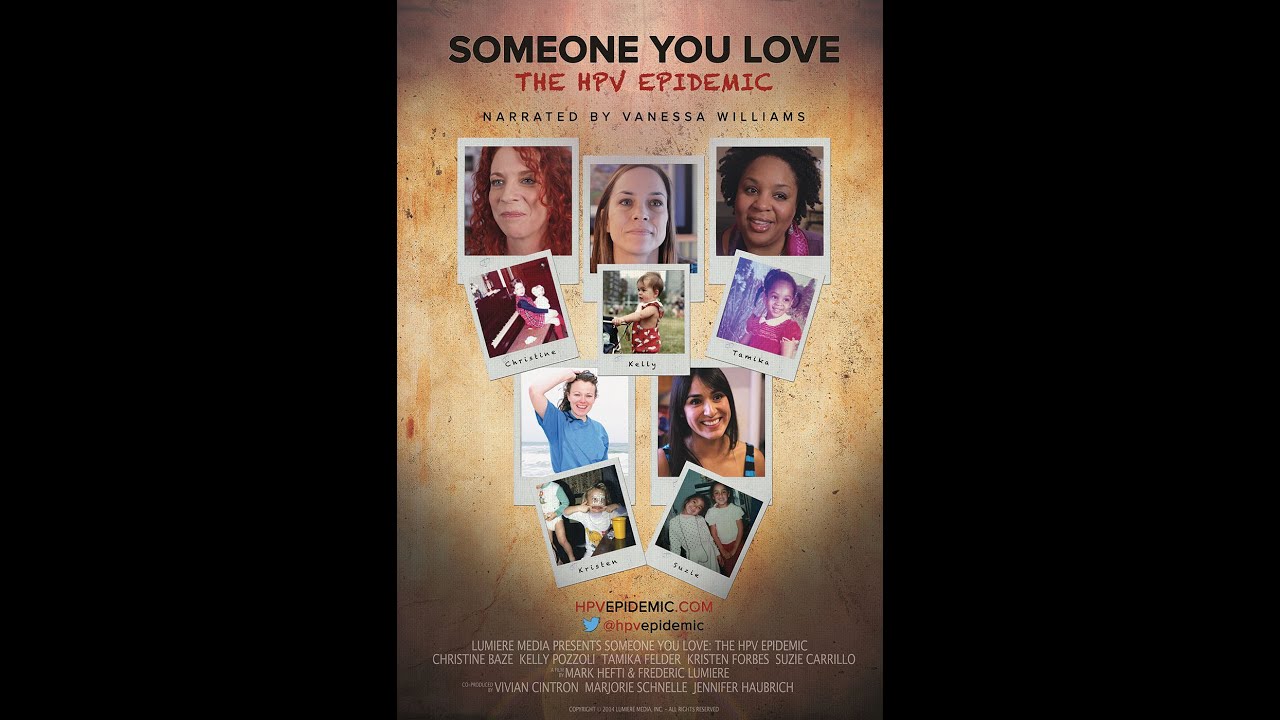
Someone You Love: The HPV Epidemic
Cervical cancer is almost exclusively caused by HPV and it is the 2nd leading cancer in women. Worldwide, cervical cancer kills over 250,000 women every year. Meet five unforgettable women whose lives have been changed forever and even interrupted by this deadly virus. Narrated by Vanessa Williams.
People of any age can feel a bit anxious about getting a shot. Some may be so anxious that they avoid vaccination…even when they know it’s important. Learn more about simple ways to help any child or adult feel better and more confident when getting vaccinated.
State and local information for vaccination resources near you.
State Immunization Programs Where to Get Vaccinated Local